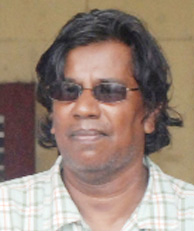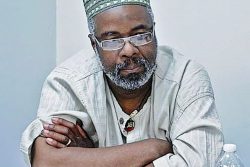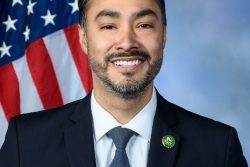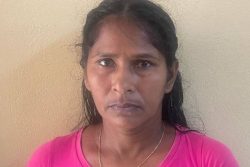Newspaper columnist, Freddie Kissoon yesterday maintained his position that former president Bharrat Jagdeo “in his personal capacity and as head of the executive” practised and pursued policies and actions that were ideologically racist and he provided statistics to back his case.
In his continued attempt to justify why he referred to Jagdeo as an ideological racist in an article which the former president used as the basis for a libel suit, Kissoon said that he found during his research that Afro-Guyanese were often bypassed for promotion and or replaced by persons of East Indian descent when it came to top public sector positions.

Taking the stand for the second time since the start of the year, Kissoon testified to the contents of his research essay entitled ‘Ethnic Power and Ideological Racism: Comparing Presidencies in Guyana’, to justify why he called the former president an ideological racist. The case is being heard by Justice Brassington Reynolds.
Led by his attorney Nigel Hughes, Kissoon said that in his research essay he made reference to the public service appellate tribunal during Jagdeo’s tenure. He said that the tribunal was in dormancy. Kissoon conducted his research between 2000 and June 2010.
At this point Jagdeo’s lead attorney Senior Counsel Bernard De Santos objected saying that the evidence being given was irrelevant to the case. “The non-functioning of that tribunal is not a relevant consideration for any issue in this case.
Hughes in response to the objection submitted that his client’s case is that Jagdeo is an ideological racist and at that moment he was trying to demonstrate that through Jagdeo’s actions. He said that his client has already proffered an analysis of the contemporary Guyanese society from independence onwards in which he identified the principal areas of political, social and academic activities.
The attorney continued that the tribunal is part of a process which offers the opportunity for redress to persons in the public service who wished to challenge decisions that have affected them.
He said that the constitution recognized that the members of the Public Service Commission (PSC) are appointed by the president, one in his own judgment and the other three are appointed by him after he had consulted with the Leader of the Opposition. The remainder is nominated by the National Assembly, he said, stressing that out of six, “the president has a right to appoint four”. This, he said, would frustrate access to natural justice.
De Santos interjected saying that his objection has nothing to do with the PSC. Hughes however said that he started with the PSC because it is from there that the tribunal comes.
The judge later overruled the objection saying that he considered it relevant to the lines being thrust by the defendant.
Critchlow Labour College
Kissoon then said that the Critchlow Labour College was one of the institutions that formed part of his research, adding that he was familiar with it since he had done some volunteer teaching there during the 1990 academic year. He taught political science, he said.
Kissoon told the court that the ethnic make-up of his class during this period was “totally Africans (Afro-Guyanese)”. He went on to say that from its inception, the institution was funded by a grant from Central Government. However during the tenure of Jagdeo, he said, that subvention was withdrawn. He acknowledged that that grant was never withdrawn by any other president including Cheddi Jagan and Janet Jagan.
He said that the grant has not been restored and noted that its courses are the equivalent of the Caribbean Examinations Council (CXC) exams. He explained that there are private applicants who have failed to obtain CXCs in the mainstream education system.
Later, Kissoon testified about 22 persons who headed various departments and held managerial positions in the health sector and who are all of East Indian descent. He said that in his research he did not find a person of African descent who held such a position either at the Georgetown Hospital or the Dental School.
According to him, former Chief Education Officers (ag) Ed Caesar and Genevieve Whyte-Nedd who are both of African ancestry were not appointed to the substantive post.
He went on to tell the court that under the Jagdeo presidency there was no criminal prosecution of Guyanese of East Indian descent in managerial positions. Some, he said, were fingered in financial improprieties, adding that there was no police investigation into these matters.
He said that some of the information he used in his research essay was had from walking into public institutions and interviewing officials.
Public institutions
Last Friday, Kissoon testified that based on his research, racism by the Jagdeo-led government was evident in most public institutions including GuySuCo, the Ministry of Foreign Affairs, the Customs and Excise Department, the University of Guyana and the Guyana Police Force where Indo-Guyanese were being favoured over Afro-Guyanese.
He testified that his research as it related to the University of Guyana (UG) was to inquire into the graduates of a programme that services the state sector in Guyana. That programme, he said, is legally titled “Diploma and Degree in Public Management” and its aim was to supply skills to the total state sector.
Kissoon said that based on his research into that programme from 2000 to 2009, he found that there were less than 10% Indo-Guyanese graduates. He said that during his research he found a great disparity in terms of ethnic representation. He said he concluded from this 10-year research at UG that “East Indian Guyanese were being favoured in the upper echelon of the state systems”.
He said that in his research he looked at GuySuCo and the Jagdeo-led government facilitated an East Indian dominance in that organization and every other public institution including the Guyana Police Force.
Referring to page 33 of his research essay, Kissoon said that the names he had listed there were of persons at the management level. He said at the conclusion of his research in June 2010, sixteen Afro-Guyanese were all replaced by Indo-Guyanese.
He said that during his research he had also looked at the relationship between economic and political power. He said that the Afro-Guyanese maintained an existence with the administration of the state, encompassing all state activities, administration of the educational system, the arts and other related activities while the Indo-Guyanese were more about property. He said that this conclusion about the latter ethnic group was that their authority, influence and power derived from their insertion in the state structure.
Plural model
He said that the political theorist and sociologists described this Guyanese phenomenon as the “plural model”. He said that the plural model in Guyana was able to provide for social stability because each ethnic community was “content with their spheres of influence”.
“I would say that the ongoing dilemma in the plural mode; in Guyana was that each ethnic community found protection and future existence in a political party of their own”, he said.
According to Kissoon from 1966 to 1992 the plural model worked because each ethnic community never saw any threat to the sphere of existence “meaning that Africans continued in their traditional occupations and so did the Indo-Guyanese”.
He said that this particular research paper argues “a fundamental shift… was occurring after 1992”. He said that there were political attempts by the administrators of the state after 1992 to do away with the plural model and that continued up to the time of his research in June 2010.
He later testified that in relation to the Customs and Excise Department 42 names, all persons of African descent are listed in his research essay. He said that he had interviewed some of them for his research and they all held senior positions. At the conclusion of his research in 2010 he said only two of them were employed but they were later demoted after they were found guilty of administrative improprieties.
In relation to the Ministry of Foreign Affairs he said that Afro-Guyanese who held top positions were removed. They all had academic qualifications, he said.
Turning his attention to the UG Council, Kissoon said that the state- appointed members were all Indo-Guyanese.
Jagdeo brought the libel suit following a June 28, 2010 Kissoon article, titled ‘King Kong sent his goons to disrupt the conference,’ which he alleges portrayed him and the government as racist. Since the case began last August, Head of the Presidential Secretariat Dr Roger Luncheon, and two Office of the President media monitors have testified for Jagdeo. Jagdeo has never attended any of the hearings.
The case continues on Monday.







